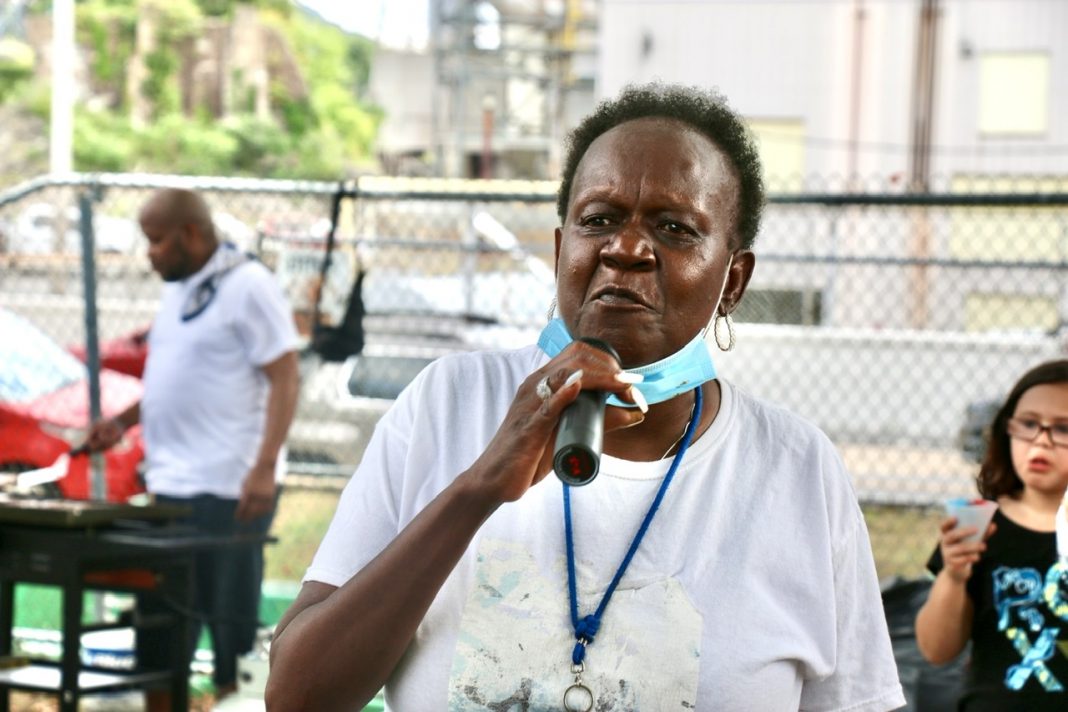Every morning, Jeanette Buchanon pulls out a chair, fixes a cup of coffee, and sits to survey the frontiers of her neighborhood. Jeanette has lived more than 60 years, her entire life, in Reading. In her neighborhood, where she has earned the title of “the mayor of Seventh Street” from her neighbors, this matriarch holds the power of convening people.
One of her earliest memories is of her grandmother, who along with a group of women, held activities for all children from the neighborhood.
“I was raised in the Reading Iron Playground and played down there every day. We had a lot of good people to look up to when we were children,” she says. “We had [my grandmother] and all of them that we looked up to; that put us on the right path and showed us the right things. and that’s what I’m just trying to do, to give back to where I’ve lived all my life.”
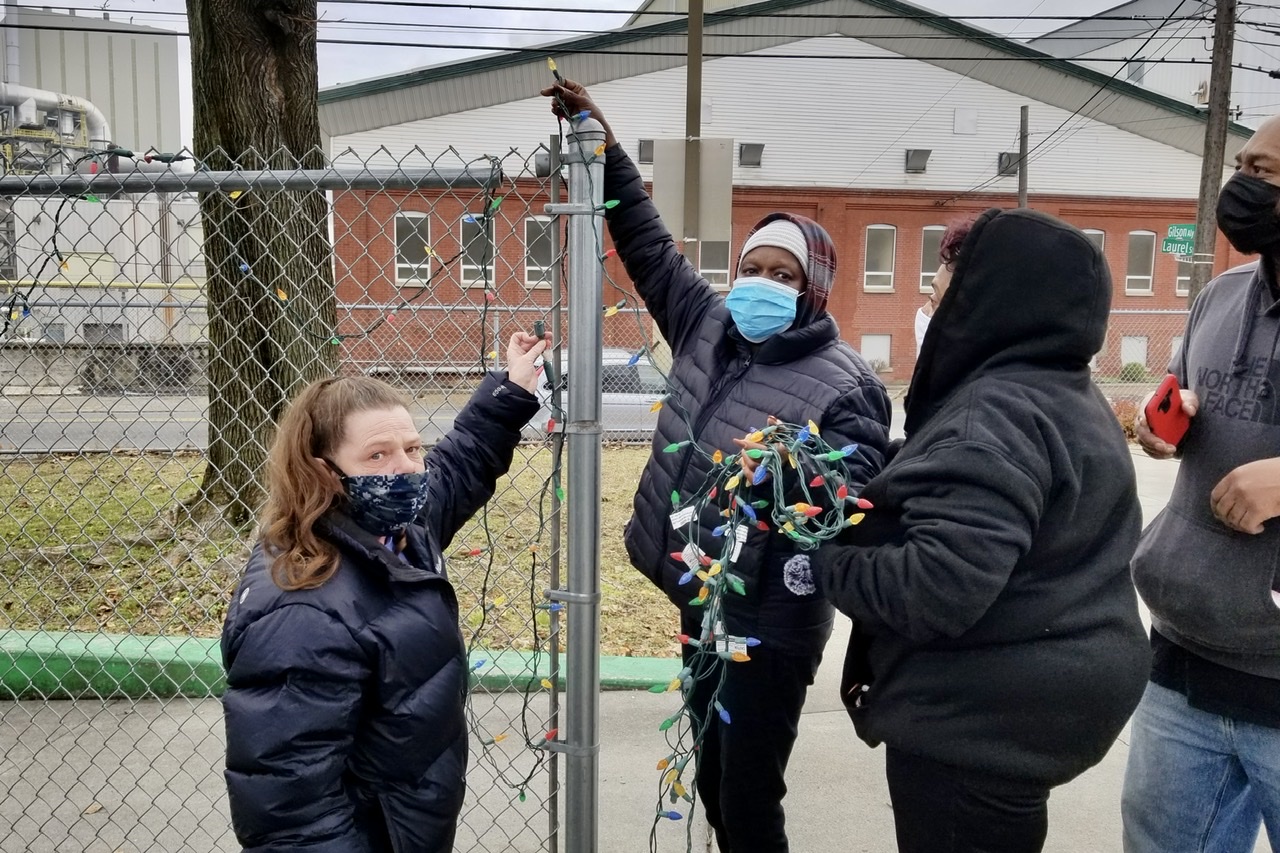
At its height, Reading boasted a population of over 110,000 people. However, like many cities across the country, Reading’s luck followed that of the rest of the rust belt of the United States. With the loss of heavy industry starting in the 1940s, the passing of the last commuter train in 1981, and the erosion of the world-famous outlets of the “Outlet Capital” of the world, Reading bled residents up until around the year 2000, when its population hovered around 80,000. Since then, Reading has grown to about 95,000 residents. But many people, including Jeanette, have remained constants in an ever-changing community.
When Jeanette was growing up, there wasn’t as much transiency.
In discussing what she’s seen change in the community, Jeanettte recalls people leaving the community, and how she’s remained this whole time.
“Everybody else moves out of the community,” Jeanette said. “I’m still one of them that’s still left, and everybody tells me I can’t go anywhere because they won’t have anywhere to come back to if I end up going somewhere.”
Jeanette continues to be a vital anchor in the community she calls home, becoming a key factor in the betterment of it. Over time, she’s become an elder figure and protector for the people in her community, one that holds the power to mitigate and diminish negative effects such as drug dealing and usage.
Jeanette’s passion for fostering the betterment of the community around the Reading Iron is a clear sign of how the people within a community are pivotal in making it what it is, and she recognizes this.
“So it’s not the city itself,” Jeanette said. “It’s the people that live in the city that makes the city what it is.”
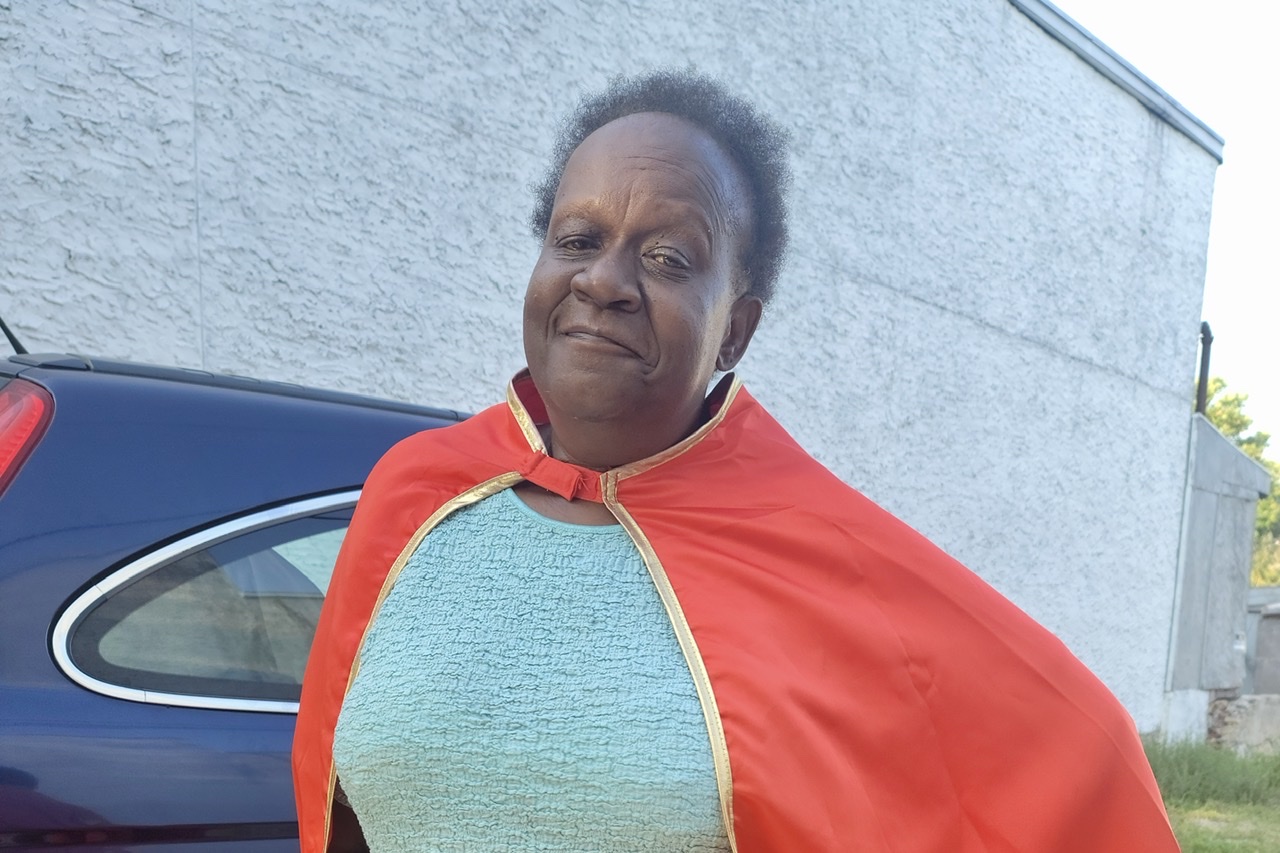
Jeanette was already making an impact on her community when the South of Penn Task Force initially connected with her in 2018. The South of Penn (SOP) Task Force is a community outreach project focused on increasing home ownership, improving livability and fostering interpersonal relationships with neighbors in the city between Canal and Franklin Streets.
They noticed there were policies in place that created barriers to holding events, but the SOP was able to support her programming, such as Easter egg hunts and block parties, as well as helping with maneuvering various systemic barriers that were in place. In addition to this, the vacant lot next to Jeanette’s house, on the 300 block of South 7th street, is a lot more cared for than before. It is in the beginning stages of transforming into a space that will help better the community even more so.
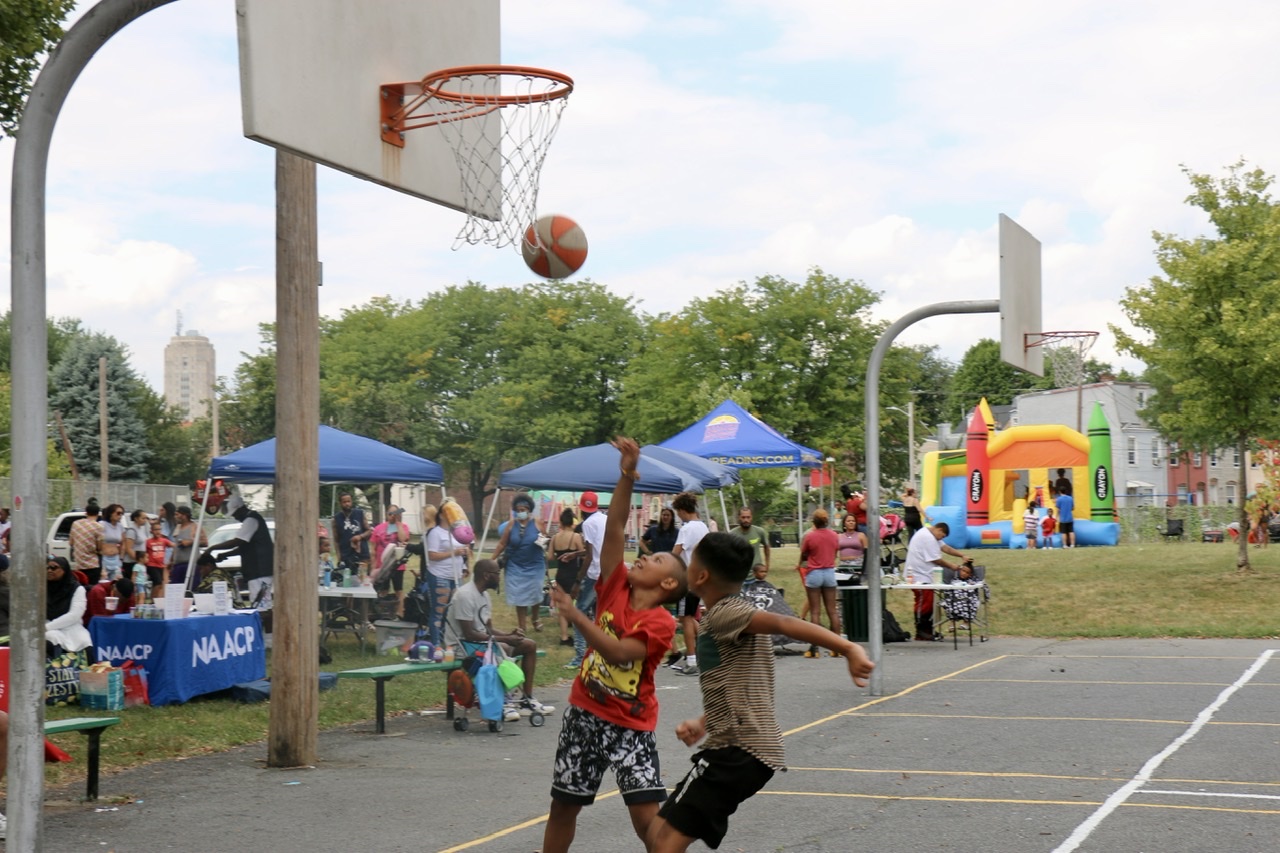
When talking about how things have changed in the community, Jeanette highlights the increased amount of activities that have been held and how important they are to the children in the community.
“Since I’ve been involved with South of Penn, we have movie nights, we have things the kids look forward to, and when you’re doing good things, good things come out of it,” she says. “When we were children, there were always things that we could do, but once all the older people passed away, things started changing. If you don’t have anything for a child to do, that’s when trouble steps in.”
“They’ll look for things to do,” Jeanette said. “When you have positive things to do, then positive things will come out of it.”
Both she and SOP have built a relationship filled with mutual trust and support in each other, helping each other out when help is needed. She’s been instrumental in what SOP does in the neighborhood.
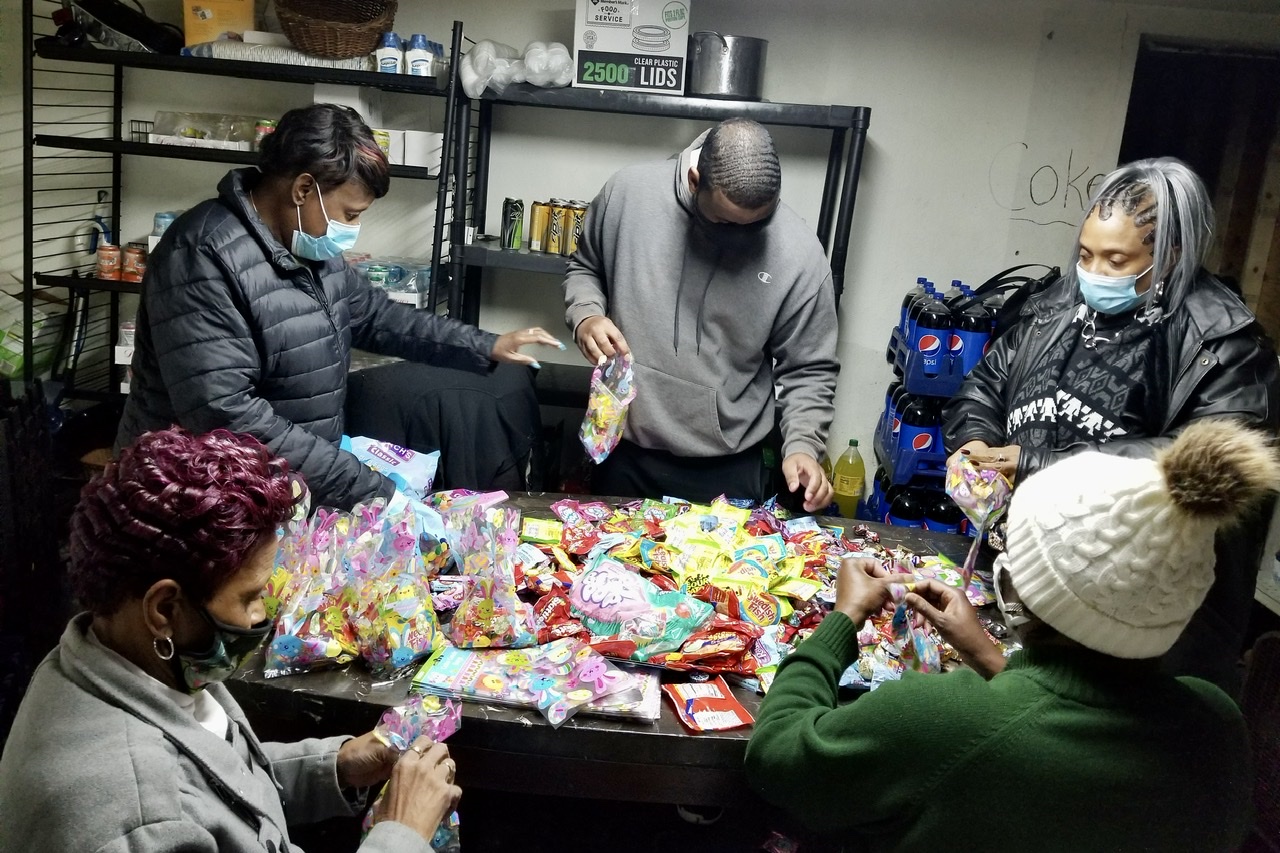
Community arts group Barrio Alegria and SOP have supplemented this by helping with what she’s already been doing in the community.
“I’m just trying to make a change because if we don’t use it, we lose it, as the saying goes,” she says. “We need people like you, me, and everybody else to get out there and hear our voices, because if we sit around and do nothing, then nothing will change. I’m trying to give back to the community because if I can put a smile on one person’s face, that would make a difference to me.”
Editor’s Note: This article is a part of “Historias del Barrio,” a series of stories written by local storytellers to highlight community members who have engaged with Barrio Alegria and the South of Penn Task Force, through a strategic partnership with The Wyomissing Foundation, to make positive impacts in their neighborhoods.


